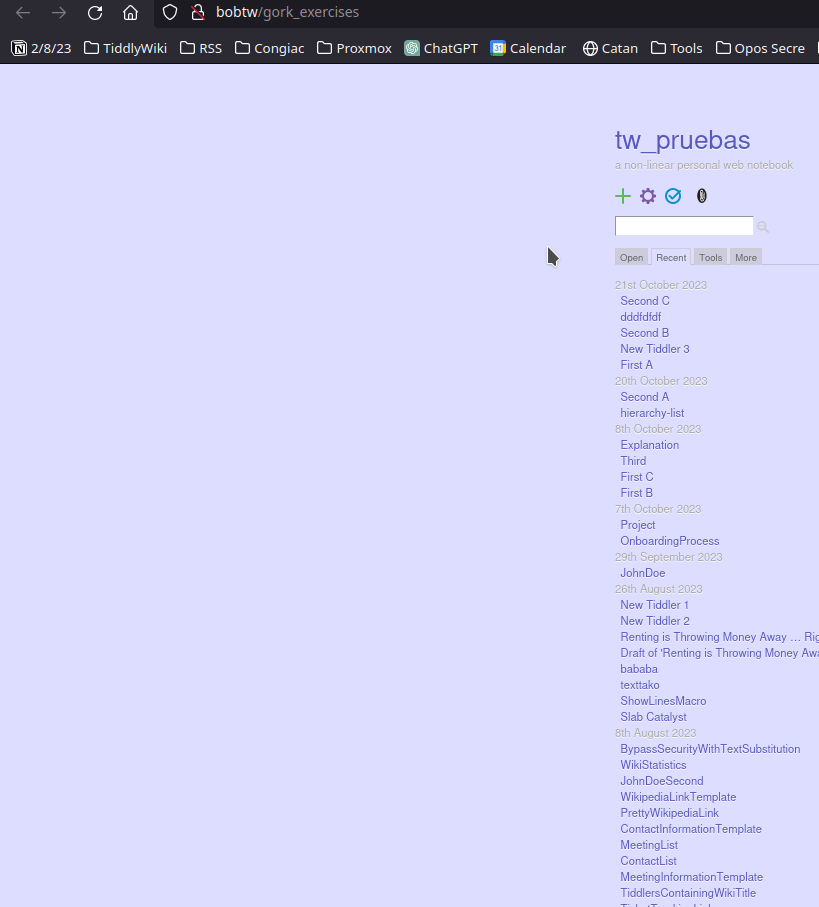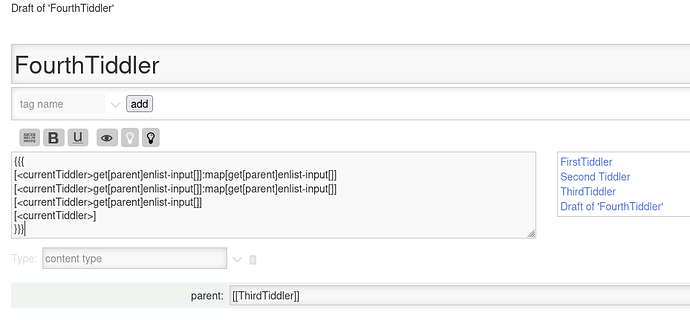I am also interested on display the path from the root to a particular leaf, but parent field is a list.
Ideas on how how to achieve Example2 result?
Example1:
tiddlerC parent field = tiddlerB
tiddlerB parent field = tiddlerA
<<hierarchy “tiddlerC”>>
Result:
tiddlerA::tiddlerB::tiddlerC
Example2:
tiddlerC parent field = [[tiddlerB]] [[tiddler2]]
tiddlerB parent field = [[tiddlerA]]
tiddler2 parent field = [[tiddler1]]
<<hierarchy “tiddlerC”>>
Result:
[[tiddlerA::tiddlerB::tiddlerC]] [[tiddler1::tiddler2::tiddlerC]]
Thanks!

